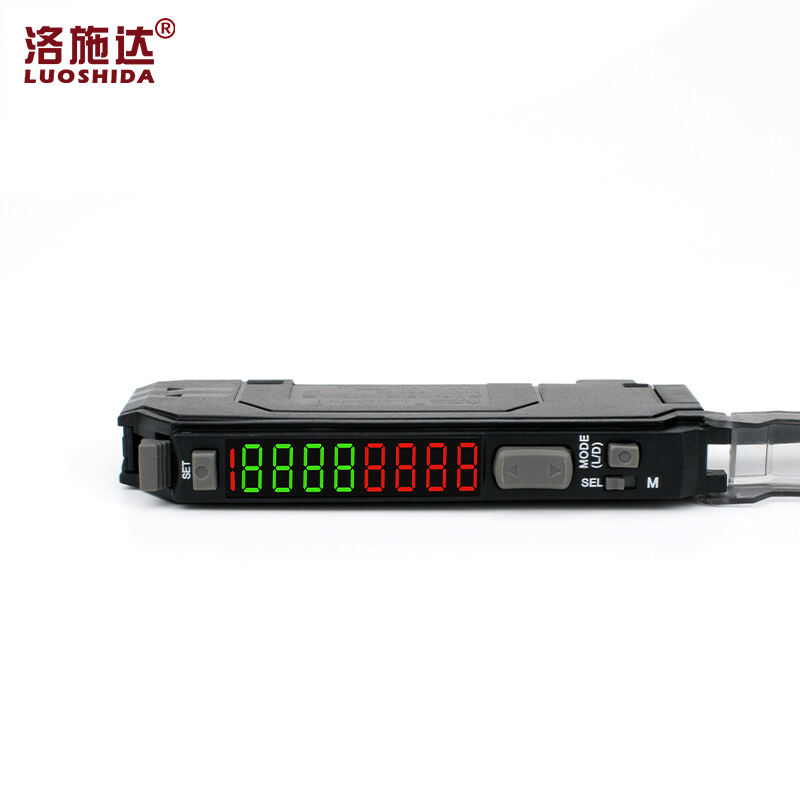
These days the industrial world is changing rapidly and with that change comes the demand for exceptional accuracy as well as unwavering dependability. Automation systems need sensors that are able to withstand harsh conditions while delivering the best performance. The LUOSHIDA fiber optic sensors can be termed as revolutionary advancements for the industries that are looking for high-quality sensing solutions. Using the light which transmits through optical fibers, this sensor is capable of sensing physical changes such as temperature, pressure, and displacement with high accuracy. This article is focused on how LUOSHIDA fiber optic sensors can help in improving industrial automation systems whereby LUOSHIDA sensors are at an advantage when compared to the traditional sensor technologies.
How Fiber Optic Sensors Work
In layman terms, fibers optic sensors are light based. More specifically, fibers optic sensors light signals remain unchanged and sends the signals through a network of fibers optic cables. When there is a change in temperature, pressure, or strain, the light signals either intensifies or changes wavelengths. The sensor detects the light signal changes and sends the information to the monitoring system. LUOSHIDA fiber optic sensors have been manufactured with the purpose of being used in very sensitive areas and environments meaning they need to be precise in their tasks.
The electromagnetic interference (EMI) is one of the major drawbacks that affect every electrical sensor in some way, but not fiber optic sensors. This feature enables the application of fiber optic sensors in industries such as aerospace, telecommunications and manufacturing, where electrical noise is a common concern.
Uses of LUOSHIDA Fiber Optic Sensors
LUOSHIDA fiber optic sensors have industrial uses that are far-reaching, for example, these can be used in:
Automation Systems: LUOSHIDA fiber optic sensors can be incorporated into fully automated systems like manufacturing assembly lines to help in sorting, packaging and quality control which require sensors operating within a small range with precise readings in automation technology.
Robotics: LUOSHIDA fiber optics sensors are effective in robotic motion control systems and parts alignment as they provide real time feedback along with detecting errors.
Environmental Monitoring: And also temperature and pressure around oil, mining, or chemical plants because fiber optic sensors have proven effective monitoring on adverse conditions.
Machine Condition Monitoring: The conditions and changes in the components of a machine can be measured through the use of LUOSHIDA’s fiber optic sensors which are able give an early indication of wear or potential failure of that particular component. In industrial operations, such an operation is beneficial as it saves on operational costs due to less or no amount of downtime that can be easily caused as a result of wear and tear.
Benefits of LUOSHIDA Fiber Optic Sensors
The LUOSHIDA fiber optic sensors have several advantages and that is why they are more preferred in industrial automation. Below we discuss some of the main advantages:
No Effect of Electromagnetic Interference (EMI) on their function: Unlike most sensors LUOSHIDA fiber optic sensors are not affected by EMI depletion which is a problem posed by the presence of electrical noise and it allows the sensor to work in a noisier environment.
High level of Sensitivity as well as High Accuracy: With the use of LUOSHIDA’s sensors, minor physical parameters can be measured accurately even when such changes are quite small.
Designed to Last: These types of sensors are able to endure extreme low or high temperature ranges, high humidity and other chemical corrosion, hence their usability in oil and gas, aerospace, and chemical industries.
Integration and Expansion: LUOSHIDA fiber optic sensors have an easy installation making it convenient to add on to an already existing system making it easy to expand your company’s operations.
Final Thoughts
LUOSHIDA fiber optic sensors are providing a perfect solution for the emerging need for precision, reliability, and interference free sensing in industrial automation. Their versatility, sensitivity and effective noise shielding makes them most suited for highly optimized industries. Be it machine monitoring, environmental monitoring or robotics, LUOSHIDA fiber optic sensors offer the level of precision and toughness that will guarantee seamless and efficient industrial processes.